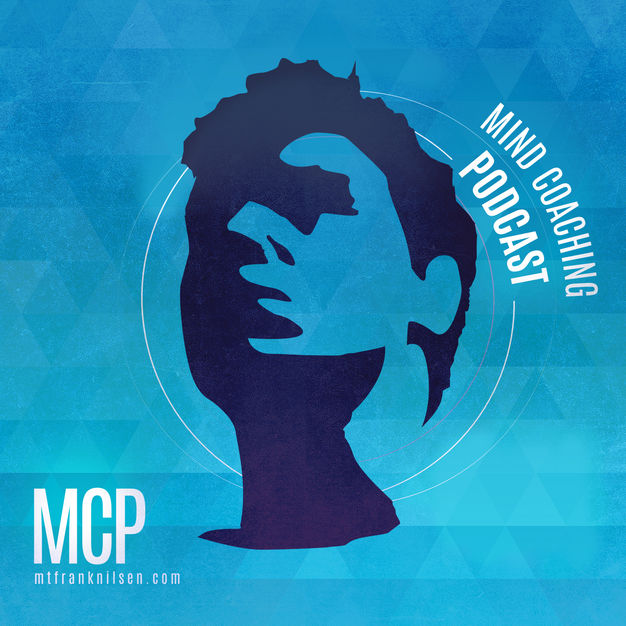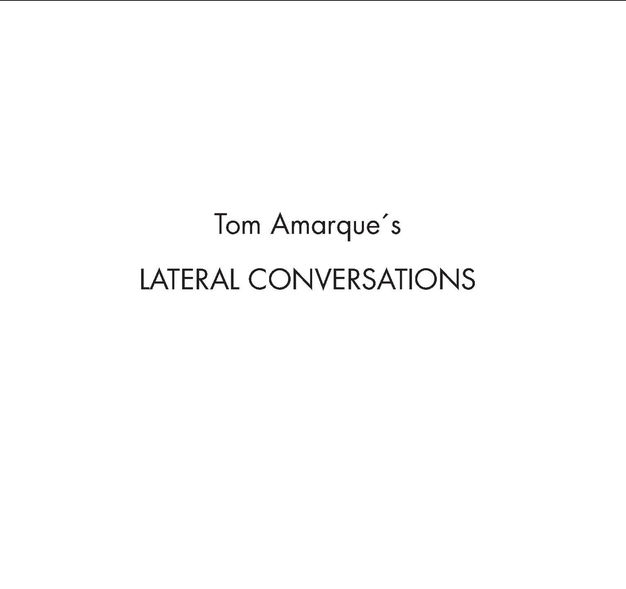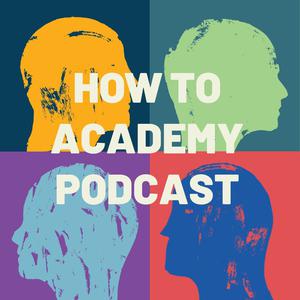
Mind Coaching Podcast
Frank Nilsen
The Mind Coaching podcast presents inspiring people with great achievements who look at failure as an incredible learning experience and a driving force for success. The founder, Frank Nilsen - a successful mind coach, goes beyond the traditional interviewing style by using deep, mind probing questions in order to get from each guest the winning strategies that helped them stay motivated, find inspiration and conquer obstacles.
- 52 minutes 14 secondsCan You Get Schizophrenia By Having to Little D Vitamins?
In today's episode, I speak with Professor John McGrath a psychiatrist who has been interested in discovering the causes of serious mental illness.
He is director of the Queensland Center for Mental Health Research and Professor at the Queensland Brain Institute. He is one of Australia's most recognized psychiatric researchers and was awarded the John Cade Fellowship by the Australian National Health and Medical Research Council.
In 2016, John McGrath was awarded a Niels Bohr Professorship at the National Research Foundation of Denmark. Internationally, he is known for his innovative research into mental health factor epidemiology, and his ability to exploit findings from epidemiology to discover neuroscience.
We talk about:
More than 20 years of experience in research on mental disorders
What is Schizophrenia?
Symptoms of Schizophrenia
Panic Disorder and Schizophrenia
Marijuana and increased risk of schizophrenia
44% increase with low vitamin D
Change personality?
The connection between dopamine and schizophrenia
D Vitamin Dosage
Personality traits and mental illnesses
Inheritance and or environment
Michael Holick
Hosted on Acast. See acast.com/privacy for more information.
31 July 2019, 3:32 pm - 46 minutes 10 secondsCancer as a metabolic disease with Professor Thomas Seyfried
Can one improve certain conditions of cancer using diet and fasting? In this episode, Thomas Seyfried, a cancer researcher and professor of biology at Boston College, discusses a controversial view of cancer as a mitochondrial metabolic disease.
We talk about::
Cancer is not genetic
What have they found out?
How does their method work in practice?
How long should one fast?
Is this something everyone should do?
With more
Hosted on Acast. See acast.com/privacy for more information.
24 July 2019, 8:03 am - 43 minutes 19 secondsPaul Stamets about mushrooms for stress, colds and creative thoughts
Can mushrooms help with stress, colds and creative thoughts as well as help bees toward an ever-increasing epidemic? Paul Stamets is one of the world's foremost in fungal research and has a total of 18 patents within the use of different types of fungi.
Paul has won numerous awards and his person is also a role in Star Trek: Discovery! I could write paragraph after paragraph about everything this man has done, but I choose to write a little about how his lectures at TED and at the Colosseum have influenced how I think about fungi.
I have always thought of mushrooms as either something I have in the food or have to avoid as dangerous in the forest. That a fungus could help against "common" diseases was completely new to me and that at the same time it can help bees from living 4 days to 9 days was completely unknown!
Can really a fungus I take for granted and part of nature be a part of an ever increasing environmental problem and can it really help me when I need it? After listening to Paul, I am in any case convinced that I will become more familiar with mushrooms and at the same time he had a great impact on my new podcast project on the environment, sustainability and innovation :)
We talk about:
Interest in mushrooms at 5 year old
The forbidden fruit
100 employees
paradigm shift
Magic mushrooms (Psilocybin) once or twice a year
A leader who is strong but kind
The massive bee death and how it can be saved
18 patents
Pompous and selfish
Had never happened without the use of Psilocybin
Fungus against colds or flu
Bootstrap mushrooms
Mushrooms against stress Lionsmane
Mushroomreference
Fungi.com
Hosted on Acast. See acast.com/privacy for more information.
20 July 2019, 3:19 pm - 1 hour 2 minutesHow to reveal a psychopath or narcissist with Professor Scott O. Lilienfeld
How can you reveal a psychopath or narcissist?
Today's guest is Scott O Lilienfeld. He is a professor of psychology at Emory University and lecturer in evidence-based treatments and methods. He has written or co-authored over 17 books in psychology and is best known for the books 50 Great Myths of Popular Psychology and Brainwashed.
We talk about:
Psychological myths
False beliefs and Memories
What is a psychopath
What is a narcissist
What to look for in others?
Soothing YouTube videoes https://youtu.be/uR8YcIM0HKM
Hosted on Acast. See acast.com/privacy for more information.
19 July 2019, 11:54 am - 1 hour 1 minuteTechniques for better sleep based on 500 million nights of data - inventor Philippe Kahn
Hosted on Acast. See acast.com/privacy for more information.
10 February 2019, 5:08 pm - 50 minutes 42 secondsIQ and what you can not influence with Professor Richard J. "Rich" HaierIn this episode:
- The future of IQ research
- CRISPR Two different parts of intelligence (fluid and crystallized)
- Identical twins study
- DNA samples from one million people
- Genetic Lottery
- Heritage or environment?
- What you can do for children to achieve their genetic potential
- The connection between focus and intelligence
- Brain images and genes
- And more
Hosted on Acast. See acast.com/privacy for more information.
18 July 2018, 12:00 pm - 57 minutes 12 secondsPrevent The Cold And Influenza With The Vitamin man Andrew SaulIn this episode:
- C Vitamins against colds and the flu
- How big doses you should take?
- What is so special about vitamin C
- Vtamin B 3 (Niacin) against cholestrol, how high doses?
- What are the benefits of a Niacin flush?
- How big doses Vitamin B1 against autoimmune diseases? WHY?
- Vitamin E
- Vitamin A
- And much more
- Enjoy
Hosted on Acast. See acast.com/privacy for more information.
16 July 2018, 6:09 pm - 51 minutes 32 secondsRe-Growing Human Body Parts with Professor Dr Stephen Badylak
Dr. Stephen Badylak, D.V.M., Ph.D., M.D. is a Professor in the Department of Surgery, and deputy director of the McGowan Institute for Regenerative Medicine. Dr. Badylak has practiced both veterinary and human medicine and he holds over 50 U.S. patents, 200 patents worldwide, has authored more than 250 scientific publications and 20 book chapters. He has served as the Chair of several study sections at the National Institutes of Health (NIH), and is now a member of the College of Scientific Reviewers for NIH. Dr. Badylak has either chaired or been a member of the Scientific Advisory Board to several major medical device companies. Dr. Badylak is a Fellow of the American Institute for Medical and Biological Engineering, a charter member of the Tissue Engineering Society International, and currently president of the Tissue Engineering Regenerative Medicine International Society (TERMIS). He is also a member of the Society for Biomaterials. Dr. Badylak is the Associate Editor for Tissue Engineering for the journal Cells, Tissues, Organs, and serves on the editorial board of several other journals.
In this episode, we talk about:
- What is the MATRIX and how did they discover it?
- What is Regenerative Medicine
- How does it work?
- How did you discover it? Was it be coincident
- Do we know why the liver can grow back?
- What is Stem cells and how do they work together with the MATRIX?
- Can MATRIX be used together with the CRISPR technique when it comes to different diseases?
- Results when it comes to muscle regrowth and organ regrowth like the esophagus
- Osteoporosis
- Cancer
Hosted on Acast. See acast.com/privacy for more information.
3 September 2017, 10:49 am - 56 minutes 18 secondsBrian Mackenzie about working with Jon Jones and breathing excersises
Brian Mackenzie is a human potential specialist. He has spent the last 2 decades in human performance learning about movement and physiology. He is the innovator of the endurance, strength and conditioning paradigm. He has studied performance, movement, hypoxia, breathing mechanics, principles and methods, along with heat and cold exposure. He has spent a lot of his time training and understanding in and around the water, desert and mountain environments. He finished Ironman (Canada 2004), has run the Western States 100 and the Angeles Crest 100 mile endurance runs with success in using methods he developed.
He co-authored the book Power Speed Endurance, NYTimes Best Seller UnBreakable Runner, and UnPlugged. Brian co-founded and created Power Speed Endurance (PSE), which specializes in movement & skill development in sport. He has taken on a quality vs quantity approach for every aspect of the coaching and programming he’s put out. MacKenzie’s programs have taught more than 400 seminars worldwide and provided programming for thousands of athletes from beginner to elite via the PSE platform and private consultation.
MacKenzie and his programs have been featured in Outside Magazine, Muscle & Fitness, Men’s Health, Competitor Magazine, Runners World, Triathlete Magazine, Men’s Journal, ESPN Rise, The Economist, Tim Ferriss’ New York Times bestsellers “The 4-Hour Body” & “Tools of Titans”, Scott Carney’s best seller “What Doesn’t Kill Us”, Men’s Running UK, LA Sport & Fitness, Muscle & Performance Magazine, and Rivera Magazine. Mackenzie has worked with professionals including Dr. Andy Galpin (CSUF Professor/Researcher & co-author of UnPlugged), Dr. Justin Mager (Health Incite, Marin CA), Dr. Brian Hickey (Florida A&M University Exercise Physiology Professor & PSE BIKE head Coach), and Dr. Andrew Huberman (Stanford Medicine Associate Professor at Huberman Lab).
Mackenzie has also worked with athletes, special operators, and MIL/FIRE/LEO with the likes of Laird Hamilton, Jamie Mitchell (10X Molokai to Oahu Paddleboard Champion and big wave surfer), Dusty Payne, Kai “Borg” Garcia, Pat Tenore (RVCA creator/founder), Oahu’s North Shore Lifeguards, UFC Light Heavy Champion Jon “Bones” Jones, CrossFit Games athletes including Rich Froning Jr (4X CrossFit Games Champion), and Annie Thorisdottir, James Newbury (2017), Olympic Gold Medalists Erin Cafaro (2X Olympic Gold Medalist in Rowing – W8+, Wife) and Taylor Ritzel (2012 Olympic Gold Medalist –W8+). He has worked with several other professional and elite level athletes in sports spanning from Triathlon, Running, MMA, Swimming, Cycling, Rowing, Surfing, Base Jumping, to invitations to work with Special Operations (US Navy SEALS, Army Rangers) and many other Military and Federal Units, and is working with Stanford Medicine / Huberman Lab on Research surrounding his work.
- Working with World champions as Jon Jones and Rich Froning (What makes them champions?)
- Dumbells under water
- Optimal Breathing techniques for sports as cycling, MMA and running
- Warm and cold therapy
- Breathing exercises of "normal" people
- Downregulating at the end of the day
- Managing stress
Hosted on Acast. See acast.com/privacy for more information.
23 August 2017, 5:10 pm - 30 minutes 13 secondsThe Power of Percetion: Perceived Physical Activity and Mortality with Octavia H. Zahrt
In this episode, I talk to Octavia H. Zahrt one of the authors behind the newly published study about perceived physical activity and mortality. The new study from Stanford shows that people that had negative thoughts about their own physical activity had 71% greater risk of dying earlier.
We talk about:
- You are what you think you are
- Perception of stress
- Perceived physical activity and mortality
- How do social comparison and public health guidelines shape people’s physical activity
- How wearable fitness trackers can shape users’ mindsets
- More
Hosted on Acast. See acast.com/privacy for more information.
21 August 2017, 11:23 am - 1 hour 21 minutesChange Your Mindset and Achieve Anything with two-time world record Colin O`Brady
Colin O'Brady is an American pro endurance athlete, mountain climber, adventurer, and professional speaker.
O'Brady is a two-time world record holder for the Explorers Grand Slam (Last Degree) and Seven Summits speed records. He became the fastest person to complete the adventurers challenges in 139 days and 131 days respectively.
He is a former professional triathlete and represented the United States on the ITU Triathlon World Cup circuit, racing in 25 countries on six continents from 2009-2015.
In 2007, O'Brady began what was planned as a year long backpacking trip around the world. In January 2008, while on the island of Koh Tao, he suffered a devastating burn injury. O'Brady participated in the local custom of fire jump-roping and was tripped by the burning kerosene-soaked rope. Although he instinctively ran into the ocean to extinguish the flames, he suffered second and third-degree burns to nearly 25% of his body, primarily damaging his legs and feet.
12 hours after the accident, he was transported by truck and boat to a hospital in Koh Samui. After a week and 8 surgeries he was transferred to a larger hospital in Bangkok. The doctors warned him that he might never regain the ability to walk normally. He took his first step the following month. "I was determined to beat the odds and focused all my energy on one day completing a triathlon to prove to myself I could make a full recovery," O'Brady said in a 2016 interview
O'Brady moved to Chicago where he took a job as a commodities trader following the accident. He learned how to walk again, and for a year focused on physical rehabilitation. He began to train for triathlon; swimming, cycling, and running.
In May 2009 he won a sprint-distance triathlon in Racine, Wisconsin and in August 2009 he placed 1st overall amateur in the Olympic-distance Chicago Triathlon. He then placed in the age-group nationals in Tuscaloosa, Alabama, which earned him a position on Team USA at the 2010 World Triathlon Championships in Budapest, Hungary. In late 2009, encouraged by his mentor, financier Brian Gelber, O'Brady quit his job to pursue a career as a professional athlete.
With Gelber as a sponsor, he moved to Australia to train in a more temperate climate. O'Brady has since completed more than 50 triathlons, ranging from sprint distance to Ironman competitions.
In this episode we talk about:
- Not being rich
- Work hard and smart
- The power of the mind
- Silent retreat
- Never walking again
- Cats in the hospital
- Summiting Mount Everest
- Fear of loosing a hand
- Meditation
- Mindset
- And much more
Hosted on Acast. See acast.com/privacy for more information.
3 August 2017, 4:16 pm - More Episodes? Get the App
Your feedback is valuable to us. Should you encounter any bugs, glitches, lack of functionality or other problems, please email us on [email protected] or join Moon.FM Telegram Group where you can talk directly to the dev team who are happy to answer any queries.
 Philosophy Workout Podcast
Philosophy Workout Podcast
 Ruthless Compassion with Dr. Marcia Sirota
Ruthless Compassion with Dr. Marcia Sirota
 Lateral Conversations
Lateral Conversations
 Overthought & Understated
Overthought & Understated
 Made You Think
Made You Think
 How To Academy Podcast
How To Academy Podcast